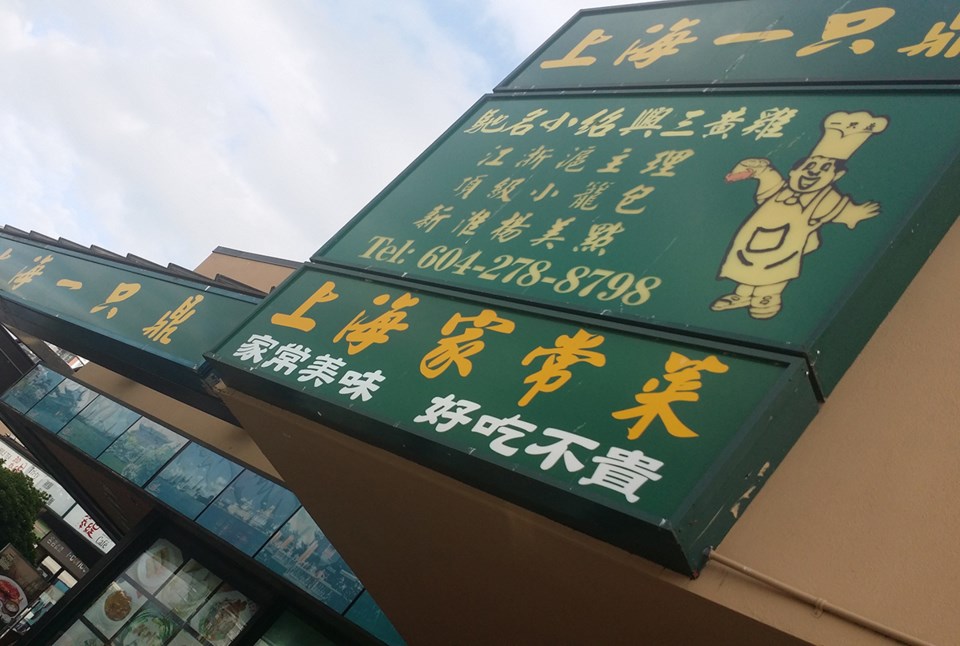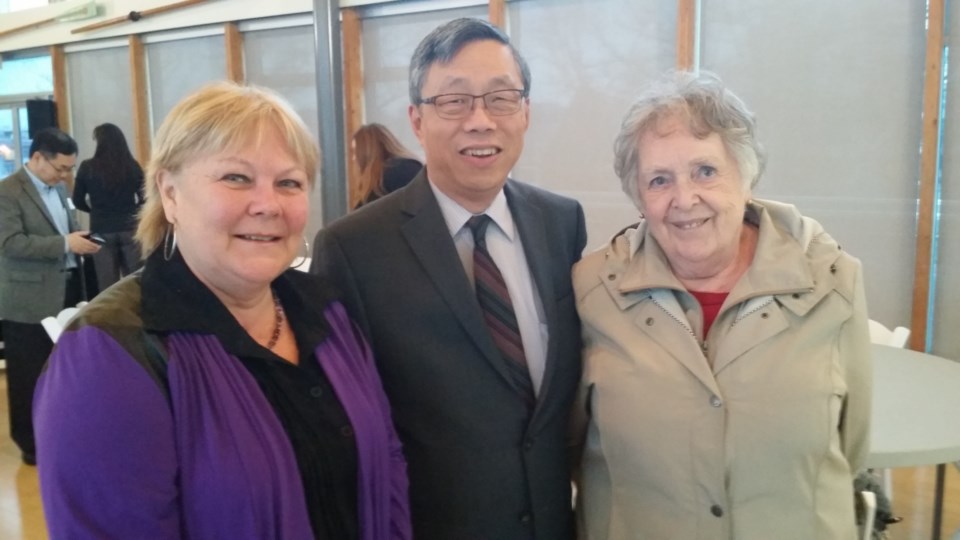Dear Editor,
The new sign bylaw regulations came into effect July 11. But once again, they deliberately fall short of the objective of including mandatory English on business signage. All new businesses will only be encouraged to put 50 per cent of their advertisement in English.
The signage issue, according to our research, started back in 1996 and continues to be a complex discussion today. The Richmond Archives had newspaper clippings dating back to 2004 with Mayor Malcolm Brodie saying a bylaw would be silly. He has recently been in metro newspapers, again saying he did not support a bylaw.
Why has Brodie been so determined to say no to a bylaw that promotes community cohesion?
In March 2013, we submitted a petition with 1,000 signatures requesting either of Canada’s official languages be included on signs publicly displayed following the format of the Aberdeen Centre. Our request was dismissed.
In 2015, the city announced that council had made a decision to address sign clutter, but with no language provision.
In many areas, the language issue has grown, spreading to bus shelters, malls, door-to-door advertisements, magazines, vans, TransLink buses... It took two years for city staff to come back to council with a revised sign bylaw. Numerous public consultations at South Arm Community Centre and the UBC Boathouse produced opinions that were lost in translation.

The city is responsible for business signs only and that is where the stories misled the public. There are advertisements everywhere throughout Richmond that had no English on them. City staff found only 12 signs that lacked English, but 600 did not even have a permit.
Previously, movable development signs on building sites were unregulated. These were the most contentious because they operate like a secret society. No interested passerby had a clue what they may be advertising.
The signage debate started for us in 2011 when a non-English sign went up on Lindsay Road in the McKay school area.
The city is now going to measure signs on residential fencing and commercial businesses to make sure everyone complies with the new sign bylaw. While originally they suggested employing a bylaw officer to “police” the language was unaffordable, they will now employ one to measure the signs.
The new clutter bylaw only applies to new businesses, but how will the officer distinguish the old from the new?
The concerns of the city is “complaint driven,” so it is necessary for the public to report rule breakers.
What is really necessary is to address the language. In December 2015, The Richmond News published a story, “Health in Richmond is compromised by lack of connectivity.” Human rights lawyer Sandra Carter advised the city that a bylaw could be challenged in court as it may contravene the Canadian Charter, in particular the freedom of expression — requesting one of the official languages on signage, along with a “mother tongue” may deny the “mother tongue” user their freedom of expression, according to the Charter. The only issue challenged in Canadian courts has been between French and English – never has a “mother tongue” been involved. There are hundreds of “mother tongues” in Richmond. Why is one given preference?
If there was evidence that denying a Canadian the right to participate in everyday life in his/her hometown is to their detriment due to exclusion; that there is social disharmony; and if there are safety issues; then there is a possibility that a language policy may be investigated. The city could go to the provincial government and ask for a language policy. This might be helpful for the current dispute in the strata townhouse issue at Wellington Court.
For seven years we have been working on this project. Our desire is to see harmony built on understanding – communication is the key that opens the world.
Ann Merdinyan and Kerry Starchuk
Richmond



